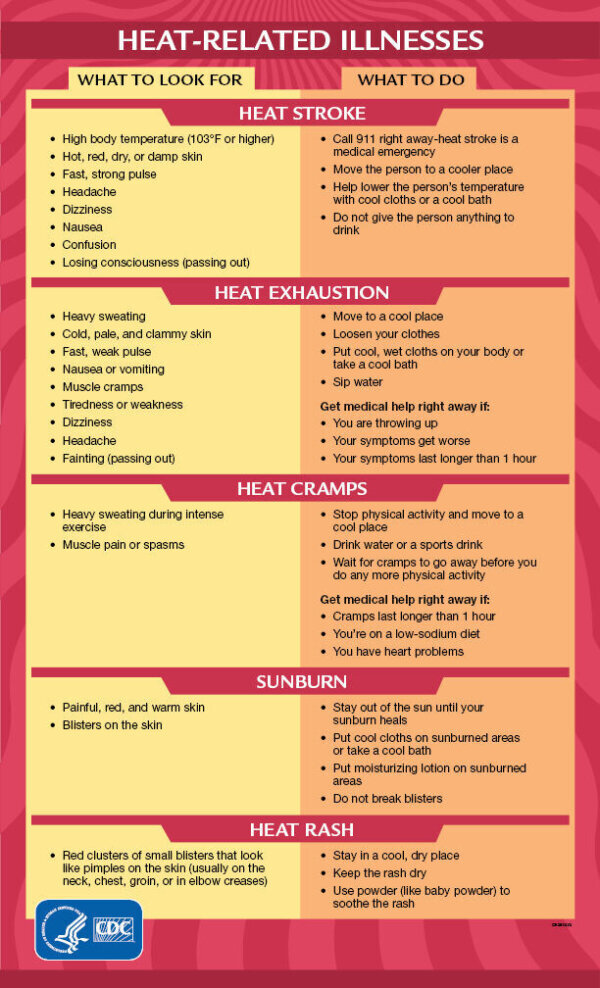If you’re planning to spend time out in the sun this weekend, you’ll want to make sure you’re prepared for extreme heat.

By definition, extreme heat consists of a mix of high heat and humidity that create temperatures above 90 degrees for at least 2 days. These conditions make it harder for our bodies to maintain a normal temperature, which can lead to hazardous, even deadly health conditions, such as heat stroke and heat exhaustion.
Those most vulnerable to these conditions include children and elderly people.
Dr. Jason Singh, an internal medicine doctor at Kaiser Permanente in Manassas, Virginia, says it’s important to recognize the signs of heat-related illnesses.
“The most common ones are heat cramps and heat exhaustion,” Singh said.
Signs of heat cramps include muscle pains or spasms in the stomach or legs. Symptoms of heat exhaustion include heavy sweating, fatigue, dizziness and muscle cramps.
If experiencing these symptoms, Dr. Singh recommends getting to a cooler location, removing access clothing, and hydrating.
Heat stroke is the more extreme condition which results from results from an oral temperature great than 103.
“You start to have red-hot, dry skin with no sweat, a rapid, strong pulse or you feel dizzy and confused. This is a medical emergency so seek attention right away,” said Dr. Singh.

Protecting yourself from the sun means drinking a lot of water, plenty of shade, and taking time to rest.
“Wear a wide-brimmed hat, and shades, and put on sunscreen of SPF 30 or higher,” stressed Dr. Singh. If using fans, he says it’s important to note they do not reduce body temperature.
According to the Centers for Disease Control and Prevention, warning signs of heat stroke include:
- Body temperature of 103 degrees or higher
- Dry, hot, red or damp skin
- Feeling confused
- Headache
- Feeling dizzy
- Losing consciousness
In cases of heat stroke, the CDC advises:
- Call 911 right away
- Move the person to a cooler place
- Do not give the person anything to drink
- Try lowering body temperature with cool cloths or a cool bath








